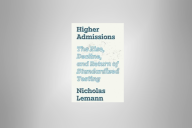You have /5 articles left.
Sign up for a free account or log in.
Last week Cornell University's Office of the Dean of Students and Cornell Information Technologies hosted a forum to discuss technology and student life. Below is a slightly edited version of my contribution.
At the end of the last forum, as we sat around with each other at the tables, one of the students looked over at me and said, "I finally figured out who you are, you are the DMCA lady!"
BUSTED! Although I introduced myself to the table, I had not gone into any detail about the various roles of my job, mostly because I did not think it appropriate for the meeting. But I confess I was also glad not to be highlighting that particular function because after ten years of working the issue, I know that it remains a contested one among students. As soon as I mention it, that is all most students are likely to see in me.
Copyright might seem some distance away from the events and issues that have brought you here this evening, so let me make the connection. Technology was a game changer for the content industry and it is a game changer for student life, and not just from the administrative perspective but also for all of you. The speed, scope and amplification of the Internet has changed the way we communicate, socialize, form relationships, live and sometimes die; its effects all of us irrevocably. You know the stories: relationships breaking up over what someone wrote on their wall, employees losing jobs because of a post or rumors amuck because of Photoshop.
Things that were once written in diaries, said between friends or contained in a limited physical space are now spread out for the world to see. But it is also true that the more things change, the more they stay the same. Technology is a tool. It can be used to promote humanity, community and uplift the spirit, or to exact hurt and cruelty. That Janus-faced quality is why we are here this evening. Cornell University applies no more stringent rules on speech and expression in emails or any form of social media, from Blackboard to Facebook, than that which is prohibited by law or policy. Our motto remains “Freedom with Responsibility.” Cornell University does not monitor the content of your web traffic. Policy forbids the disclosure of your email unless there is a court order, health or safety reason. Anyone can create a list serve. Leaders of those lists can create their own rules about access and forwarding but they do so against a backdrop of a university that allows full expression except that which violates law or policy.
What violates law or policy? Child pornography, obscenity, that which immediately incites a riot or imminent threat of danger and that which is deemed to be defamatory or libelous, an invasion of privacy, a misappropriation of an image and other such torts, or, in some cases, criminal infractions as it would appear invasion of privacy is in New Jersey, where it is currently being applied to the Tyler Clementi case at Rutgers. His death and any crimes against gay students ... and straight, bisexual and transgender students; Black, Latino, Native, Asian and White students; Muslim, Jewish, Christian, Buddhist, Mormon, Hindu and Baha'i students break our hearts. Help us, help you.
Speak your truths tonight; open up to us, to your friends, and even your enemies. Freedom of speech comes with the responsibility to exercise it in the name of your citizenship at Cornell and in American society. Exercise the leadership that is in each one of you, call upon your courage to speak out in the face inhumanity and cruelty, and strive to create a strong, trusting and caring community.






